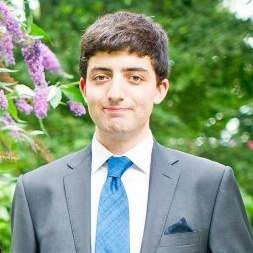The Mariinsky/Birmingham Ring came to an end every bit as triumphant as the tremendous coup for the city of actually getting the cycle itself into town. George Tsypin’s staging of Götterdämmerung was once again spectacular, and Valery Gergiev’s conducting incisive, engaging and deeply moving.
The orchestral playing is at the fore in the Prologue, with its stirring Prelude and Siegfried’s Rheinfahrt. The orchestral playing was a notch better than last night’s fine display, positively glowing in the magnificent sunrise as Siegfried and Brünnhilde appeared over the top of the vast centre-stage rock, silhouetted against the deep red of the morning sky. The sound rose from the Hippodrome pit with remarkable fullness and colour, and was a constant pleasure through the whole opera.
Just as much a constant presence tonight (though sadly not through the whole cycle – most of the protagonists were played by different singers each night) was Larisa Gogolevskaya as Brünnhilde. Her lucid, rounded tone throughout the pitch range was supported both by fine control and immense power. She began the opera convincingly as the innocent child Wotan anaesthetised at the end of Walküre, and grew via a wild struggle with Siegfried (disguised as Gunther) and subsequent cold rage to a thrilling immolation scene.
After the success of Mikhail Vekua as Siegfried last night, I was a little disappointed not to be hearing him again tonight. Doubts were quickly dispersed by Andreas Schager’s performance, though. He was adequately dynamic on stage and heroic in voice to maintain his youthful image, but also somehow mature enough to convey a real sense of desolate tragedy at his death. It was a role exceptionally well crafted.
The male Gibichungs were both dark and steely and in voice, but Hagen (Mikhail Petrenko) was especially menacing: a brilliantly manipulative villain with all the necessary depth of sound. His were some of the most spectacular moments, in particular when towering high above the stage in Act 2. Edward Tsanga (Gunther) was in similarly fine form. Mlada Khudoley (Gutrune) has a very beautiful, lightly-coloured tone, but was perhaps more a peripheral bystander than she might have been.
The supporting characters – Waltraute, the Rhinemaidens, and the Norns – all did their bit with total assurance and unfailing beauty of tone. The Mariinsky Chorus produced some hair-raising moments as well as conducting themselves with commendable dramatic skill. Their war-mongering was expressed with memorable gusto.
As in Siegfried last night, Gergiev was not afraid to take his time with the score, emphasising the intense psychodrama of Wagner’s poem. This made for some moments of grim darkness, especially early on in the opera, but once or twice the pace felt to be somewhat overly ponderous. In any case, the inter-character relationships were so finely detailed by the clarity of the links between music and drama that they became very real and believable.
The broader concept of the production receives little explanation in the programme, and Tsypin seems quite content to leave many questions unanswered. The four monolithic statues dotted around the stage, each as tall as a large house, could be cleverly manipulated into the form of a dragon or rocky outcrop. Most of the time, though, they stood proud, with their carved faces cast into vague expressions by the excellent lighting effects. At various stages the hearts or heads of the statues would light up up in turn, or one of the heads would be taken down for the statue to ‘hold’ for an act. This stimulated a great deal of interval conversation material as a reflection on the events of any particular passage. They offered a real sense of enormity, which was only fully appreciated as the magical final pages purred from the brass section.
This was a memorable performance founded upon musical excellence and dramatic intrigue. The applause, of course, went on extensively, as will the memory of the Cycle.




